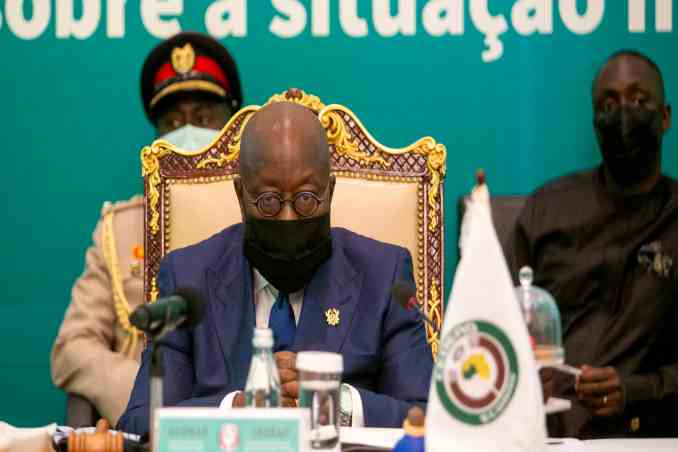Last updated on September 11th, 2021 at 07:58 am
On Saturday, West African states said they will continue to monitor events in Mali following a coup before removing the country’s suspension from a regional grouping. Following Colonel Assimi Goiter’s coup in May, Bamako has declared a new civilian government and committed to stick to a timeline for elections early next year.
After weeks of large protests against corruption and the long-running terrorist insurgency, he spearheaded a coup with fellow army officers in August to depose elected President Ibrahim Boubacar Keita.
Following the second putsch, the 15-nation Economic Community of West African States (ECOWAS) suspended Mali and levied sanctions. After an ECOWAS summit in Ghana’s capital, Accra, ECOWAS commission chief Jean-Claude Kassi Brou told reporters, “When you look at the situation, there were positive developments.”
READMORE: Morocco to receive $450 mn in loan from World Bank to boost resilience
However, he noted that before lifting Mali’s suspension, heads of state concluded that extra monitoring was required. “At this point, while seeing positive gains, they believe the suspension should be continued because they want to see how firm progress is being made…” “The heads of state want to know that progress is being made.”
This month, Mali proclaimed a new administration, with army figures holding crucial positions. On May 24, Goita spearheaded the second coup against a government reshuffle that left key army officers out. France, which has tens of thousands of troops stationed in Mali, has ceased military cooperation with the country.
This month, Paris announced that it would phase down its 5,100-strong Barkhane force, which has been fighting Islamists in the Sahel since 2013. Goita has promised to return the country to civilian governance. In accordance with international requests, the colonel nominated a civilian prime minister and announced that elections would be held in February.

